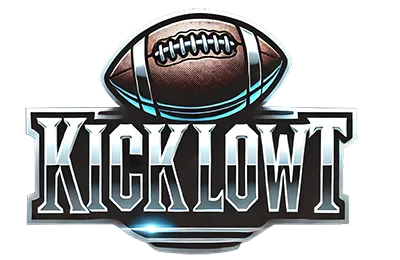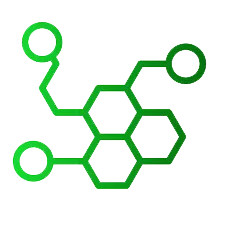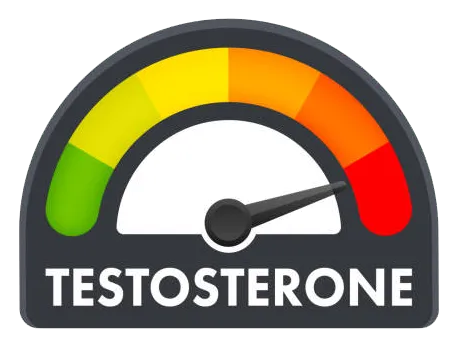
"Boost Your Testosterone and Feel Like Yourself Again!"

How Does Low Testosterone Affect Me?
Testosterone is a natural hormone in your body that is responsible for the normal growth and development of certain male organs and for the maintenance of other masculine traits. Testosterone is produced in the testes the reproductive glands that also produce sperm and regulated by the hypothalamus and pituitary gland. As men age the chance of your testosterone levels decreasing is common (male hypogonadism), with these decrease in Testosterone you can suffer from low energy and libido, an increase in body fat, and emotional changes.

How Common Are Low Testosterone Levels?
Low T levels become very common as men age, and it’s estimated that as many as 40% of men over 35 have low testosterone. This age range is also the range where prostate cancer rears it’s ugly head. Many men, especially younger men, are nervous to seek treatment for low testosterone. While symptoms differ from person to person, men with Low-T also experience a decrease in libido, erectile dysfunction, and heart disease. Waiting to seek help can lead to the late detection and worsening conditions. Testosterone level checks are easy – it’s a simple blood test..

Benefits of Testosterone Replacement Therapy
With TRT treatments patients feel more energized, stronger, and less irritable. Also they enjoy more productive sleep and find it easier to concentrate and remember, and experience an increase in libido. Because we take a holistic approach to men’s healthcare, our medical professionals can proactively address other conditions you’re currently experiencing. Our medical providers get to know you on a personal level and gather important health data. Our TRT programs offer healthy solutions to boost testosterone levels.
We focus on treating your symptoms, and it all starts with a simple blood test
Our Hands-On Approach
We offer customized, convenient healthcare plans for men with low testosterone. Treating your low testosterone levels is the first key step toward helping you feel your best. As our testosterone patient, you will have access to our wide range of men’s health management services. Your personalized men’s wellness plan will address each one of your essential health needs, from low testosterone to high cholesterol, all in one place.
There is no one-size-fits-all solution, and all of our testosterone replacement therapy plans are customized to your needs. Book a FREE appointment today for a health assessment with our team to receive a low testosterone therapy treatment plan customized to your specific healthcare needs, including those for testosterone deficiency.
What To Expect With Testosterone Replacement Therapy!
Boost Energy and Improve Stamina
Many middle-aged men experience fatigue and reduced stamina due to low testosterone levels. Feature how your clinic's personalized treatment plans can help restore energy levels, enabling them to feel more active, focused, and capable in both their personal and professional lives.
Enhance Mood and Mental Clarity
Low testosterone can contribute to mood swings, irritability, and even feelings of depression. Highlight how your treatments not only improve physical well-being but also mental clarity and emotional balance, helping them regain control of their mood and productivity.
Revitalize Libido and Performance
Sexual health is often a sensitive but crucial issue for men with Low Testosterone. Discuss how your treatments can help reignite your libido and improve overall bedroom performance, offering a discreet and professional solution to help you feel confident again.
Increase Muscle Mass and Strength
Testosterone plays a crucial role in building and maintaining muscle mass. With optimized testosterone levels, men can experience improved muscle tone, faster recovery times, and increased physical strength, making workouts more effective and boosting overall fitness.
Promote Better Heart Health
Low testosterone is linked to higher risks of cardiovascular issues, including high blood pressure and cholesterol. Highlight how maintaining optimal testosterone levels can support heart health, potentially lowering these risks and promoting long-term wellness.
Prevent Age-Related Weight Gain
Men with balanced testosterone levels often have better metabolism, making it easier to burn fat and maintain a healthy weight. By addressing Low T, men can combat age-related weight gain, particularly around the midsection, which is a common struggle for middle-aged men.
Frequently Asked Questions
Is testosterone replacement therapy right for me?
Testosterone replacement therapy (TRT) may be appropriate for men of any age with low or borderline-low levels of testosterone — a condition known as hypogonadism — who display its signs and symptoms. Testosterone is a hormone that plays a crucial role in the development and maintenance of male reproductive and sexual functions, body composition, bone health and behavior.
What are the signs and symptoms of low testosterone?
Symptoms can include:
Infertility
Decreased body or facial hair
Enlarged breasts
Decrease in lean body mass and muscle strength
Obesity
Decrease in bone mineral density
Reduced sexual desire (libido)
Erectile dysfunction
Delayed orgasms
Decreased testes size
Metabolic syndromeInsulin resistance
Type 2 diabetes mellitus
Other signs are hot flushes, changes in mood, depression, irritability, decreased memory or reasoning, fatigue, sleep disturbances.
How much are TRT treatments and are they covered by Insurance?
TRT treatments are far less expensive as you may think. Testosterone replacement injections treatments currently start at $189 per month, including anastrozole as needed and all medical supplies. * Most insurance plans cover testosterone replacement therapy (TRT) as long as it's medically necessary. The cost you'll pay depends on your insurance plan, location, and treatment protocol, but you'll typically only need to pay a co-pay. Co-pays can range from $30–$90 per month.
How can I be sure I have low testosterone?
If you have any of these signs and symptoms, a simple blood test can determine your testosterone level. This can be done at most laboratories, but it is best to have your blood drawn at a specialized lab — such as at our Clinics — that uses more advanced testosterone measurement techniques. Your blood should be drawn between 8 a.m. and 11 a.m. due to daily variations in testosterone secretion.
Is low testosterone a natural part of the aging process?
As men get older, testosterone levels decline naturally in a gradual and almost imperceptible manner. In some men, however, a more significant decline can occur. If low testosterone is impacting your quality of life, you are likely to benefit from testosterone replacement therapy.
Does testosterone replacement therapy work?
Yes. Numerous studies have shown that testosterone replacement therapy can restore normal levels of testosterone. Reported benefits include improved body composition (more muscle and strength, less fat), weight loss, stronger bones, better metabolic and diabetic control, improved psychological health (cognitive function, mood, concentration), heightened sexual function (libido, erectile function, orgasms) and, possibly, fewer cardiovascular events.
Who should I see for testosterone replacement therapy?
It is best to seek treatment from a physician who is trained in testosterone replacement therapy, known as an andrologist. An andrologist is a board-certified urologist who has additional training in sexual medicine, male infertility and hypogonadism (low testosterone).
Is testosterone replacement therapy safe?
Yes, but first it must be emphasized that testosterone therapy, like any medical treatment, can have side effects. These may include increased blood viscosity, breast enlargement or testicular shrinkage. These side effects can generally be prevented or easily managed if you have routine follow-ups with a physician trained in testosterone replacement therapy.Second, while most men seek testosterone therapy to treat a real medical condition (hypogonadism), others, unfortunately, have abused testosterone replacement therapy for anabolic (exaggerated muscle building) and performance purposes. This can lead to dangerously high and unregulated levels of testosterone enhancement, which can have potentially serious side effects.
Is testosterone replacement therapy safe if I have prostate cancer?
This can only be answered on a case-by-case basis. It is important to recognize that prostate cancer occurs on a spectrum ranging from locally contained (low risk) to widespread (advanced risk) disease.If you have low-risk prostate cancer and low testosterone, the benefits of testosterone replacement therapy usually outweigh the risks. Conversely, in cases of aggressive or widespread disease, testosterone replacement therapy is typically not advocated. You should always consult with your oncologist and andrologist for a thorough risk-benefit assessment.
Is testosterone replacement therapy safe if I plan to have children?
It may seem counterintuitive, but testosterone replacement therapy is actually a form of male contraception. When given to a man, it acts on the the brain to suppress natural testosterone production as well as sperm production in the testicles.If you have low testosterone and would like to preserve your fertility, there are other options for treatment, such as clomiphene citrate and human chorionic gonadotropin (HCG), that may promote natural testosterone secretion and maintain, or even improve, your sperm production. Here

© 2024 Kick Low-T - All Rights Reserved. National Men's Health Organization to further the development of care.
Call us at: xxx-xxx-xxxx
Email us at: [email protected]